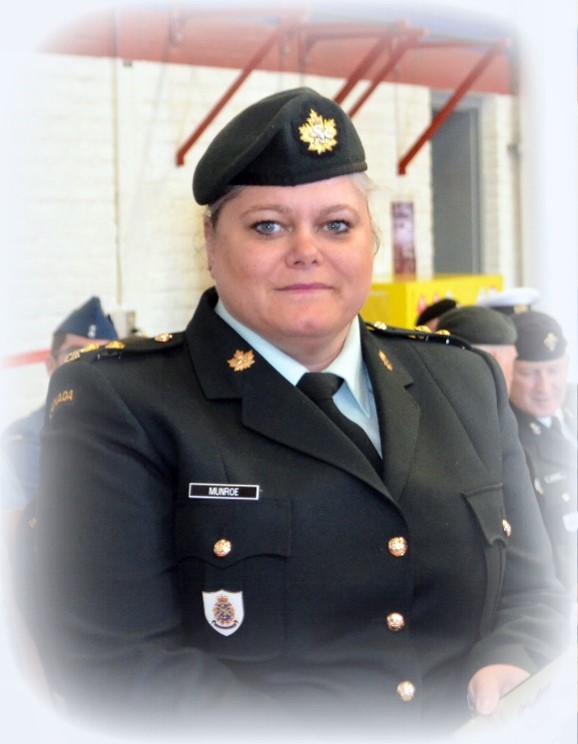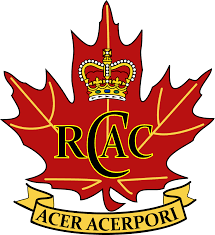The 242 Fredericton Army Cadet Corps has been operating in our city for the past 75 plus years providing youth between the ages of 12 and 18 with unique training opportunities within the Army Cadet Training program.
Meeting Time and Location:
We train at the Carleton Street Armory every Sunday evening from 5:00 pm to 8:00pm.
For more information on upcoming activities and training nights, check out our upcoming events page.
Meet the experts
Our Team

Capt. Munroe
Commanding Officer
OCdt. Beal
Training Officer

Lt. Li
Administration Officer
CI. MacDonald
Instructor
CWO Savoie
Supply Officer
Need more information?
We have put together some info we think parents might want to know
This information page has been put together to answer some of the questions often asked by the parents and guardians of new cadets. If after viewing this package you still have any questions, please feel free to contact the Unit’s Commanding Officer, Captain C. Munroe, at any time.
The Canadian Cadet Organization (CCO) is a joint venture, which includes the Department of National Defence (DND) and civilian cadet leagues. The cadets themselves are civilians; the officers are members of the Canadian Armed Forces (CAF) reserve component called the Cadet Instructors Cadre (CIC).
DND and the Army Cadet League of Canada assist in the funding and training of 242 Fredericton. This allows a cadet to join without an enrolment fee, provides the uniform, and assists with the training of the cadet. The Unit is still required to raise additional funds, through our Corps Support Committee and the Army Cadet League. Fundraising programs are conducted to provide a successful training program. We encourage all cadets to help raise funds for the unit through these programs. Occasionally we will ask cadets to contribute to the cost of a trip, or to pay their charge for a dance. We keep this fee as low as possible.
The Unit occasionally sends home an activity list. This advises the parents when extra activities may be taking place. To save on paper and keep the communication lines open between the Unit and parents, we prefer to use email communications. In addition, we encourage parents to attend parent information meetings, and support committee meetings.
UNIFORM AND EQUIPMENT
The parade and field training uniforms which are worn during cadet training is provided free of charge. The Unit will instruct the cadet on proper care and maintenance of the uniforms. The Unit has a standard of dress that each cadet will be taught and should try to achieve perfection in. Should the cadet complete their training, or leave the unit, the uniform must be returned to our supply office as it is the property of the unit and DND.
There are other items which your cadet may bring home. For example, if the cadet joins the band he/she may bring home an instrument. The cadet will sign for this item, and will be expected to take care of it. These items are the property of the unit support committee and must be returned if the cadet leaves the unit or any time we ask for its return. All instruments are to be returned in June for cleaning and maintenance each year.
The Unit asks that the parent/guardian of the cadet help ensure that these items are taken care of. We understand that there will be normal wear of these items, but if everyone is doing their best to take care of equipment, repair and replacement costs will remain low.
MANDATORY AND OPTIONAL TRAINING
The cadet training program is very extensive. It is broken into 2 sections: mandatory training and optional training.
Mandatory training is mostly conducted on the regular training night, which is every Sunday night. Mandatory training is the minimum standard a cadet must achieve to be qualified in their current training level. The subjects taught during mandatory training covers instructional abilities, effective speaking, leadership, citizenship, self-discipline, physical and recreational training, and more. There is some supplementary training on these subjects that cannot be done during the regular Sunday night training and must be done outside the units’ facility at other times. For example, the field training exercise or expeditions are completed during a weekend in the woods; and the Remembrance Day parade, is also a mandatory activity where cadet’s attendance is expected. Optional training includes activities such as band, orienteering, biathlon, and marksmanship. These activities help increase the cadet’s involvement and interest in the training program. These activities are voluntary and are usually held during other scheduled times (weekends mostly). They are not mandatory, but cadets’ performance in the unit is also assessed during these activities.
UNIT STANDING ORDERS AND DISCIPLINE
The Unit has a set of rules, (called Standing Orders) that are reviewed with the cadets at least a couple of times a year. The Standing Orders cover appearance, attitude, conduct, training, chain of command, Positive Social Relations for Youth (PSRY), and security of the building during training. Also covered are smoking, drugs, and alcohol offences.
Most of the rules which are contravened, are of a minor nature and are handled by assigning the cadet an extra duty, a verbal correction, or noted on the training record. Some offences that are more serious or reoccurring offences may result in a cadet not being allowed to go to a “fun” non-mandatory activity. Verbal abuse or physical abuse, used to discipline a cadet, is not tolerated in the Cadet program. The cadets are instructed how to report this if they feel it is happening. The unit staff will investigate any of these complaints and correct them.
It is against the law for a minor to buy tobacco or cannabis products. Since this is the case, it is a standard policy in the Cadet program that cadets do not smoke at cadet activities. Alcohol and drugs are also not tolerated at cadet activities and an offence under the alcohol or drug policy can lead to the cadet being released from the cadet program and the police being informed.
If a cadet is found vandalizing the Local Headquarters (LHQ), or not complying with the Standing Orders Security Policy, they will be suspended or possibly released from the unit.
All matters of discipline will be handled in accordance with Cadet Administrative and Training Orders (CATO) 15-22: Conduct and Discipline. The parents/guardians can view the Unit Standing Orders at any time. In addition, if you have any questions about the policies or disciplinary actions, or any other concerns please feel free to contact the Commanding Officer.
SUMMER TRAINING SELECTIONS
During the summer, cadets are encouraged to apply for summer training courses. These courses are conducted for both junior and senior levels. These courses aim to expand the cadet’s knowledge and to specialize in different fields of study. These courses are free, they take place at various Canadian Forces Bases across the country, and the cadets receive a training bonus of $60 per week. These courses range from 2 to 6 weeks in duration.
Unfortunately, not every cadet that applies for summer training can receive a course offer. The Unit is given a certain number of course vacancies to fill. Before nominating a cadet for a course, the unit staff look at attendance, attitude, performance, and readiness for the course. When the nominations are made to DND Headquarters for junior level courses, after reviewing the cadet’s record and performance, the cadets are ranked by the unit as first, second, 3rd, etc. in order of priority for course selection by DND headquarters. The Advanced Training Course selections are similar, but most of the candidates for these courses must also complete an interview with a selection board consisting of CIC Officers and members of the Army Cadet League.
CORPS SUPPORT COMMITTEE
Most successful units have set up Corps Support Committees. The purpose of the Corps Support Committee is to support the Unit with resources to conduct activities not supported by DND. The Corps Support Committee can be involved in fundraising events, helping the unit with extra supervision, helping the unit to run events, and helping the unit with assistance with transportation. Most of the members of the Support Committee are parents of cadets. This committee is your opportunity to become involved with your cadet’s experience in the cadet program. The Corps Support Committee can help to reduce the administration burden for the unit officers. Most parents are already very busy we understand this. Most of the jobs to be carried out by the Corps Support Committee require a minimum amount of time. In addition, the more parents we have active on the committee, the more these tasks can be shared. “Many hands make light work.”
